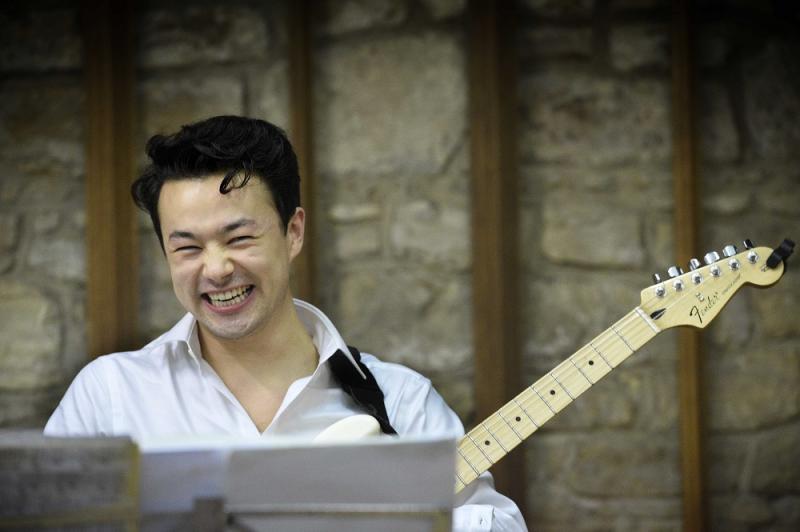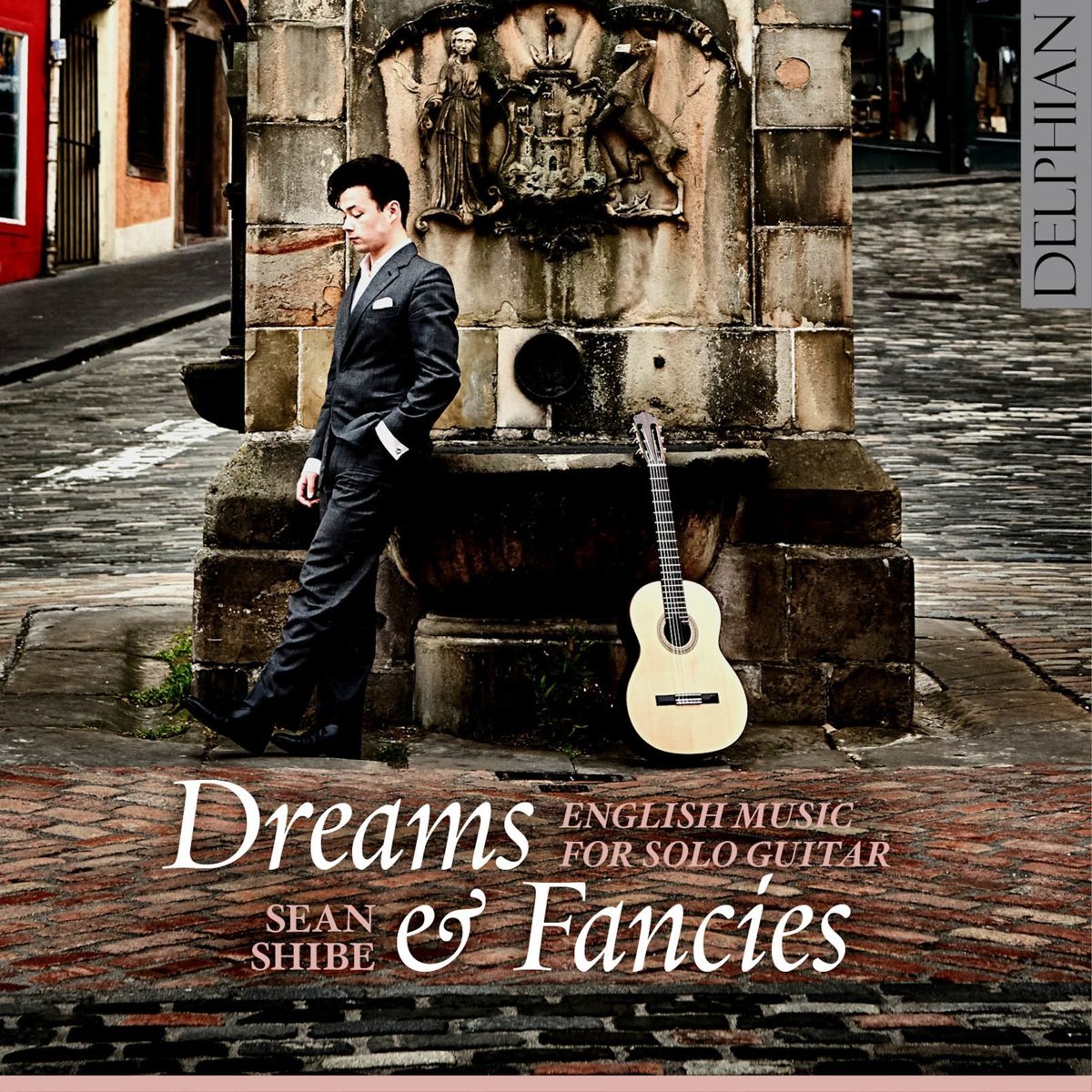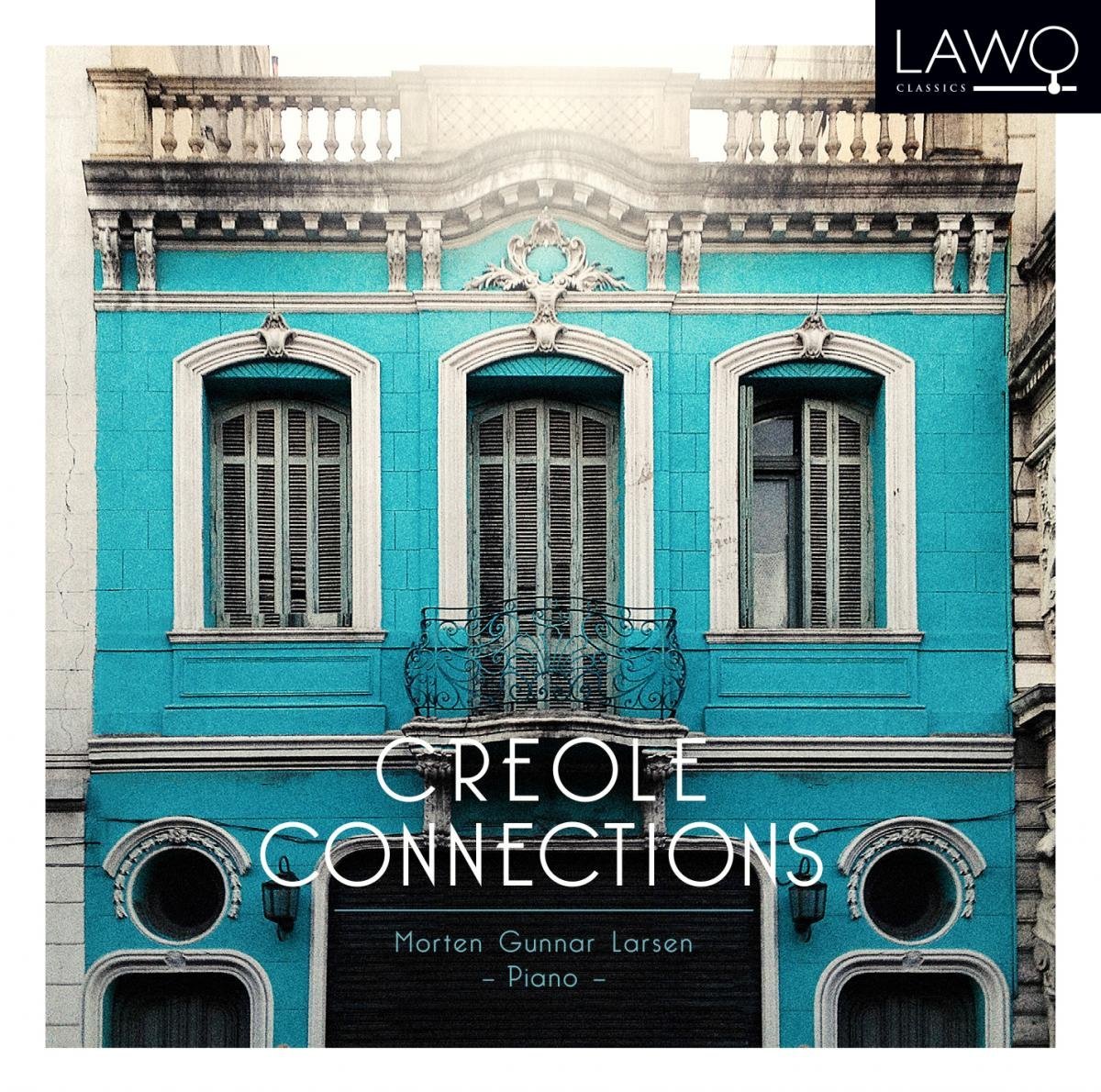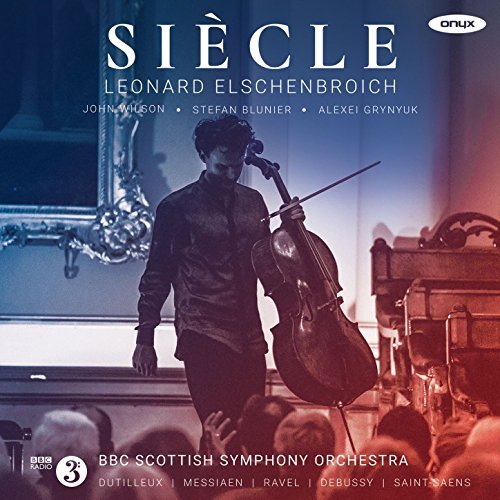Classical CDs Weekly: Sean Shibe, Morten Gunnar Larsen and Leonard Elschenbroich | reviews, news & interviews
Classical CDs Weekly: Sean Shibe, Morten Gunnar Larsen and Leonard Elschenbroich
Classical CDs Weekly: Sean Shibe, Morten Gunnar Larsen and Leonard Elschenbroich
English guitar repertoire, piano works from the Americas, plus 20th century French cello music

 Dreams & Fancies – English music for solo guitar Sean Shibe (guitar) (Delphian)
Dreams & Fancies – English music for solo guitar Sean Shibe (guitar) (Delphian)
This is the best solo guitar disc I've heard. That it comes from a soloist in his twenties makes it all the more astounding. There's a funny quote in Lucy Walker’s sleeve note from the influential Spanish guitarist Francisco Tárrega, who remarked that “the guitar in the hands of an Englishman is almost blasphemy.” Not any more; the British guitarist Julian Bream emerged from nowhere to become one of the 20th century's most important players, and one who inspired a huge range of contemporary composers to write new music for him to perform. Apart from a smattering of John Dowland, everything on Sean Shibe’s debut disc was inspired by Bream’s playing. Three gravely beautiful Dowland pieces, originally for lute, form the centrepiece, preparing us for an astounding reading of Britten's Nocturnal after John Dowland. Shibe really plumbs the depths; for all its beauties, this nine-movement work contains music of astonishing power, the tension easing when a Dowland air is quoted in the final section. Remarkable stuff, and the range of colours which Shibe draws from just six strings is extraordinary.
Malcolm Arnold’s Fantasy for Guitar is lighter fare but no less impressive, demonstrating this underrated composer’s dizzying versatility. The brief “Fughetta” is a technical marvel, and the two slow movements contain killer tunes. At one point Shibe makes his strings overlap, a startling percussive effect. Walton’s Five Bagatelles were dedicated to Arnold as a 50th birthday gift. Walton’s already slow work rate had become a trickle by the time they were completed. Not that you'd notice; they're marvellous music, spiky and charming by turns. Lennox Berkley’s Sonatina for Guitar is more conventional in form, Shibe at his best in the unexpectedly spare slow movement. All handsomely recorded: listen the old-fashioned way (ie not through crap headphones) and it's as if Shibe is in the room. Brilliant – buy multiple copies immediately and distribute to family and friends. They'll thank you.
 Creole Connections: Piano music by Nazareth, Gottschalk and Piazzolla Morten Gunnar Larsen (piano) (Lawo Classics)
Creole Connections: Piano music by Nazareth, Gottschalk and Piazzolla Morten Gunnar Larsen (piano) (Lawo Classics)
Creole? It's because the pieces on this disc are by composers from North and South America with Mediterranean roots: the subsequent mingling of classical European styles with indigenous music leading to new musical forms. Pianist Mort Gunnar Larsen sees the Brazilian composer Ernesto Nazareth as the pivotal figure, a colourful musician described by Villa-Lobos as “the true incarnation of the Brazilian soul”. Poor Nazareth met a sticky end in 1934, and on the evidence of the eight pieces collected here, he's a composer you'd like to hear more of. His tangos are breezier affairs than the two by Astor Piazzolla included here, though they share Piazzolla’s quirky originality. The tiny Labirinto has an infectious left hand part and some unexpected key changes. Best is the sublime, extended slow waltz Turbilhão de beijos. It could sound like a piece of naïve hack work in unsympathetic hands, but Larsen treats it with disarming respect.
Four short pieces by Gottschalk aren't quite in the same league, though an irresistible Mazurk comes close. David T Roberts’ Maria Antonieta Pons is a delicious rumba, and I was floored by a pair of tiny dances by the Cuban composer Ernesto Lecuona. An enchanting collection, played with lashings of rhythmic zip. Lawo’s sound is predictably good. Only the minimal documentation disappoints, though information about the various composers can readily be found online.
 Siècle: Music for cello by Debussy, Dutilleux, Messiaen, Ravel and Saint-Saëns Leonard Elschenbroich (cello) (Onyx)
Siècle: Music for cello by Debussy, Dutilleux, Messiaen, Ravel and Saint-Saëns Leonard Elschenbroich (cello) (Onyx)
Dutilleux’s rhapsodic, Baudelaire-influenced cello concerto Tout un monde lontain was recorded, brilliantly, by its dedicatee Rostropovich. But this new version, by the young German cellist Leonard Elschenbroich, is more rewarding in the long term. Largely because it's better engineered, with cello and orchestra impeccably balanced. And the BBC Scottish Symphony Orchestra’s playing, especially from the all-important percussion section, is immaculate. It's conducted, unexpectedly, by John Wilson, whose repertoire is broader than many give him credit for. Elschenbroich’s performance makes the work thrillingly accessible; the luminous opening of the final section should have you purring with delight. And how well Dutilleux’s long lines are sustained, the second movement's “Regard” utterly magical. Unsurprisingly, he's also superb in the Louange à L’Étérnité de Jésus from Messiaen’s Quartet for the End of Time. It's exquisite without being sentimental, and sensitively accompanied by pianist Alexei Grynyuk.
Elschenbroich and Grynyuk give Debussy's elusive late Cello Sonata real shape and coherence, the quicksilver finale breathtaking. Ravel’s Pièce en forme de habenara oozes louche charm. Stefan Blunier conducts the BBCSSO in the sole non-20th century work, the first of Saint-Saëns’ two cello concertos. This extrovert, big-hearted piece doesn’t sit too readily with the rest of the disc, other than being French. And I'm not sure why this anthology is called Siècle. But I'm not complaining. Buy this for the Dutilleux.
Explore topics
Share this article
The future of Arts Journalism
You can stop theartsdesk.com closing!
We urgently need financing to survive. Our fundraising drive has thus far raised £49,000 but we need to reach £100,000 or we will be forced to close. Please contribute here: https://gofund.me/c3f6033d
And if you can forward this information to anyone who might assist, we’d be grateful.

Subscribe to theartsdesk.com
Thank you for continuing to read our work on theartsdesk.com. For unlimited access to every article in its entirety, including our archive of more than 15,000 pieces, we're asking for £5 per month or £40 per year. We feel it's a very good deal, and hope you do too.
To take a subscription now simply click here.
And if you're looking for that extra gift for a friend or family member, why not treat them to a theartsdesk.com gift subscription?
more Classical music
 BBC Proms: Moore, LSO, Bancroft review - the freshness of morning wind and brass
English concert band music...and an outlier
BBC Proms: Moore, LSO, Bancroft review - the freshness of morning wind and brass
English concert band music...and an outlier
 Willis-Sørensen, Ukrainian Freedom Orchestra, Wilson, Cadogan Hall review - romantic resilience
Passion, and polish, from Kyiv's musical warriors
Willis-Sørensen, Ukrainian Freedom Orchestra, Wilson, Cadogan Hall review - romantic resilience
Passion, and polish, from Kyiv's musical warriors
 BBC Proms: The Marriage of Figaro, Glyndebourne Festival review - merriment and menace
Strong Proms transfer for a robust and affecting show
BBC Proms: The Marriage of Figaro, Glyndebourne Festival review - merriment and menace
Strong Proms transfer for a robust and affecting show
 BBC Proms: Faust, Gewandhausorchester Leipzig, Nelsons review - grace, then grandeur
A great fiddler lightens a dense orchestral palette
BBC Proms: Faust, Gewandhausorchester Leipzig, Nelsons review - grace, then grandeur
A great fiddler lightens a dense orchestral palette
 BBC Proms: Jansen, Royal Concertgebouw Orchestra, Mäkelä review - confirming a phenomenon
Second Prom of a great orchestra and chief conductor in waiting never puts a foot wrong
BBC Proms: Jansen, Royal Concertgebouw Orchestra, Mäkelä review - confirming a phenomenon
Second Prom of a great orchestra and chief conductor in waiting never puts a foot wrong
 BBC Proms: Royal Concertgebouw Orchestra, Mäkelä review - defiantly introverted Mahler 5 gives food for thought
Chief Conductor in Waiting has supple, nuanced chemistry with a great orchestra
BBC Proms: Royal Concertgebouw Orchestra, Mäkelä review - defiantly introverted Mahler 5 gives food for thought
Chief Conductor in Waiting has supple, nuanced chemistry with a great orchestra
 Dunedin Consort, Butt / D’Angelo, Muñoz, Edinburgh International Festival 2025 review - tedious Handel, directionless song recital
Ho-hum 'comic' cantata, and a song recital needing more than a beautiful voice
Dunedin Consort, Butt / D’Angelo, Muñoz, Edinburgh International Festival 2025 review - tedious Handel, directionless song recital
Ho-hum 'comic' cantata, and a song recital needing more than a beautiful voice
 Classical CDs: Dungeons, microtones and psychic distress
This year's big anniversary celebrated with a pair of boxes, plus clarinets, pianos and sacred music
Classical CDs: Dungeons, microtones and psychic distress
This year's big anniversary celebrated with a pair of boxes, plus clarinets, pianos and sacred music
 BBC Proms: Liu, Philharmonia, Rouvali review - fine-tuned Tchaikovsky epic
Sounds perfectly finessed in a colourful cornucopia
BBC Proms: Liu, Philharmonia, Rouvali review - fine-tuned Tchaikovsky epic
Sounds perfectly finessed in a colourful cornucopia
 BBC Proms: Suor Angelica, LSO, Pappano review - earthly passion, heavenly grief
A Sister to remember blesses Puccini's convent tragedy
BBC Proms: Suor Angelica, LSO, Pappano review - earthly passion, heavenly grief
A Sister to remember blesses Puccini's convent tragedy
 BBC Proms: A Mass of Life, BBCSO, Elder review - a subtle guide to Delius's Nietzschean masterpiece
Mark Elder held back from blasting the audience with a wall of sound
BBC Proms: A Mass of Life, BBCSO, Elder review - a subtle guide to Delius's Nietzschean masterpiece
Mark Elder held back from blasting the audience with a wall of sound
 BBC Proms: Le Concert Spirituel, Niquet review - super-sized polyphonic rarities
Monumental works don't quite make for monumental sounds in the Royal Albert Hall
BBC Proms: Le Concert Spirituel, Niquet review - super-sized polyphonic rarities
Monumental works don't quite make for monumental sounds in the Royal Albert Hall

Add comment